Any DJ with a sizable collection of music on their hard drive knows that the MP3 is far from dead, despite a rash of clickbait articles in recent weeks. In today’s article, contributor Steven Maude assesses what it would take take for a new file format to replace MP3. What would have to change? Is it even a vaguely realistic possibility considering what tools people are using to play music? Keep reading for an in-depth analysis.
The MP3 Is Dead? Not Really.
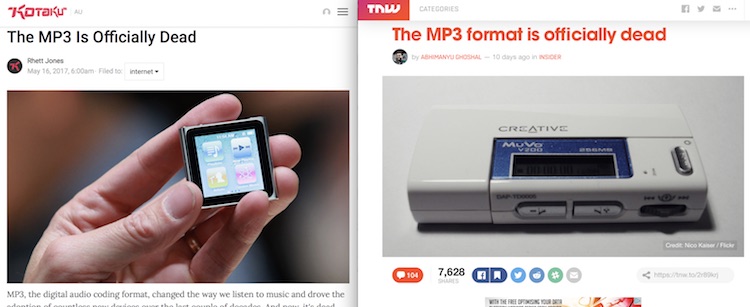
Over the past week, you might have read articles announcing MP3 as one of the casualties of 2017.
Especially if you’re listening to an MP3 while reading, it’s probably surprising to discover what you’re actually hearing in your ears is not actually music, but the lamentable cries of a now-departed format.
Fraunhofer, the German research organization, where Karl-Heinz Brandenburg and colleagues developed the MP3 format, declared MP3 dead to them. This NPR story appears to have been the patient zero of this story, although they were quite deliberate about adding a caveat:
But now, 22 years later, the MP3 truly is dead, according to the people who invented it.
Unfortunately, other writers (going for clickbait gold) were happy to inform their readers that — sorry folks — the MP3 is dead.
“Dead” = “We Can’t Make Money Off It”?
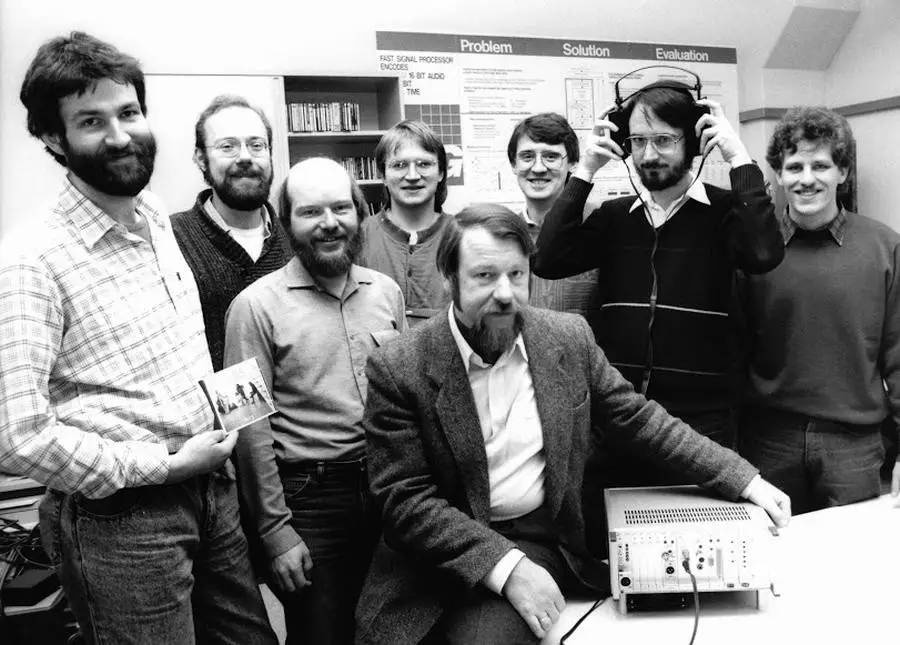
MP3 is dead to Fraunhofer because the patents recently expired on the algorithm itself. From a business perspective, Fraunhofer cares about the formats for which they can still charge money for patent licensing (for example, the AAC format). In that vein, it makes sense for them to promote newer formats they’ve developed that can make them money, and not the one that doesn’t any longer.
But this is a very different story, one of soulless balance sheets, and more mundane than the death of MP3. Motherboard offered one of the more sober responses around, arguing that MP3 isn’t really going anywhere just because the creator of it says so: what happens now is entirely out of Fraunhofer’s hands.
That said, the same NPR article does conclude that:
“when the people who spent the better part of a decade creating it say the jig is up, we should probably start paying attention.”
What’s A Potential MP3 Successor?
Since DJs playing digital formats are likely to still rely on audio files, it’s timely to consider what the future of MP3 really is.
AAC is a successor to MP3 that Fraunhofer and other organisations created, and yet hasn’t supplanted MP3 as the format of choice. From memory, my instinct is that most of the audio I’ve downloaded in the last year (tracks, podcasts, and albums) have been MP3s, with a small sprinkling of WAVs and FLACs.
Notable also is Bandcamp’s view; they default to variable bit rate MP3 for downloads, “The default download format is MP3, and this is probably what you want.”
If, then, MP3’s health hasn’t then taken a sudden turn for the worse, then what would a format need to get rid of MP3 for good?
#1. A much more efficient format
AAC, despite being more efficient at lower bit rates hasn’t dethroned MP3, so what would? Maybe if there was a format that’s more efficient by, say 10-100 times, i.e. giving comparable listener quality to high quality MP3, that might provoke people into finally switching. Being a little more efficient and a little smaller isn’t really going to cut through the inertia of users switching to it.
Opus can perform even better than AAC at low bit rates, and, in contrast to AAC, is freely licensed, but, again, neither has its development prompted a shift away from MP3.
#2. Bandwidth contention
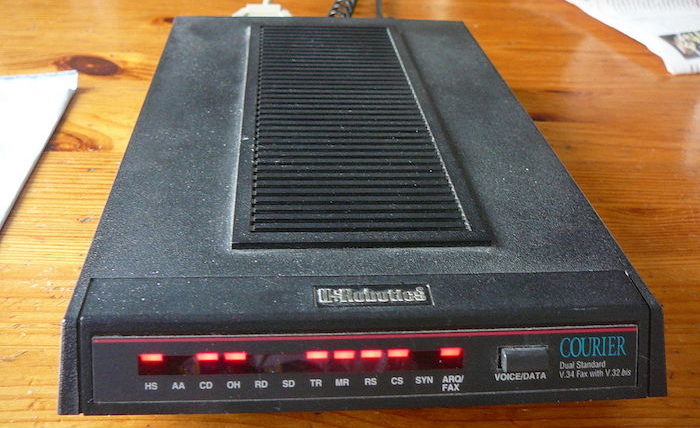
There’s another hindrance to switching from MP3. Since it was made available in the 1990s, bandwidth and storage capacities have increased. Distributing 24-bit lossless WAV or FLAC is now standard in some digital music stores. The issue of MP3 being small enough isn’t really important unless you have relatively poor internet connectivity. They’re usually quick to download, and even moderate phones can carry thousands of MP3s. This supports the idea that a real revolution in compression technology would be needed to convince users to switch to something new.
Maybe something like a lossless compression that was the same size or smaller than MP3 might be a selling point. But generally, high quality MP3 (e.g. 320 kbps constant bit rate or LAME high quality variable bit rate modes) largely sounds good enough for most people, so such a change is unlikely to convince the public.
Like developer and blogger Marco Arment observed, JPEG has been surpassed, yet it’s not “dead”. It’s likely most of the images you’ve seen today online are still JPEGs.
#3. Very fast encoding and decoding
[clickToTweet tweet=”Who wants a smaller or better audio format that killed MP3, but also their phone’s battery life?” quote=”Who wants a smaller or better audio format that killed MP3, but also their phone’s battery life?”]Another barrier: any new format requires sufficiently fast encoders and decoders to be available. No-one but the most dedicated are going to spend, say, several minutes or an hour encoding an audio file, when they can the same in a few seconds now.
The decoding aspect is perhaps even more important. Much listening is done on mobile devices with still relatively poor battery life (charging a phone daily isn’t out of the question for some devices with substantial use). MP3 on the other hand has fast decoders available for many hardware platforms: MP3s were even playable back on PCs with Intel’s original Pentium processors 20 years ago, and today’s devices don’t even break a sweat to play MP3.
#4. Playable everywhere
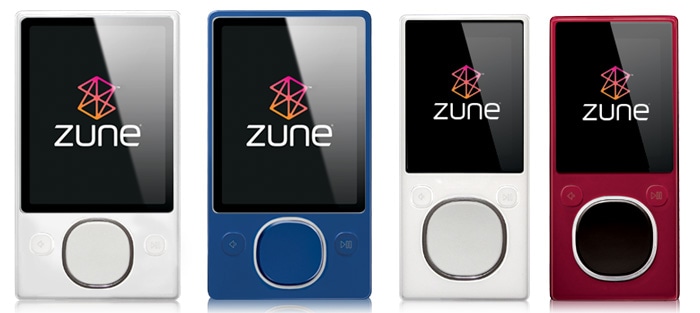
Such a format needs to be supported so that creators know that their content is playable everywhere. Computers and mobile phones are extendable through new apps, but there’s lots of legacy hardware that won’t receive an upgrade to play this new imaginary MP3-killing format. If that hardware plays MP3 now, it will still continue to do so quite happily.
This is a vicious circle that a new audio formats would struggle to break:
- It could take a long time before potential listeners have a convenient way to play the new format. This depends on how eager device manufacturers and software developers are to use it.
- In the meantime, anyone providing the new format only would inevitably get complaints from listeners who can’t playback those files.
- Audio producers would just continue to put out audio in multiple formats, including MP3, which increases the inertia for switching in the first place, or for anyone to implement it.
#5. Feature enhancements?
Maybe adding features that offer more options for listening might help a new format dethrone MP3. One thing that comes to mind is functionality like Native Instruments’ Stems, which I suggested here on DJTT might be sold more generally as a way of providing different ways of listening (e.g. bundling instrumentals with the usual track). That might even extend outside of dance music.
But this hasn’t happened, which either means no-one’s thought to push this, or that it’s just not viable.
Still, it’s not completely impossible that someone comes up with an ingenious idea that disrupts how we think about listening to music. There could be an innovation analogous to how FaceApp has changed recently changed how users think about and interact with images of people.
But, this type of addition may not even need a new format at all, and thus doesn’t offer a nice route for would-be assassins of MP3.
#6. Streaming
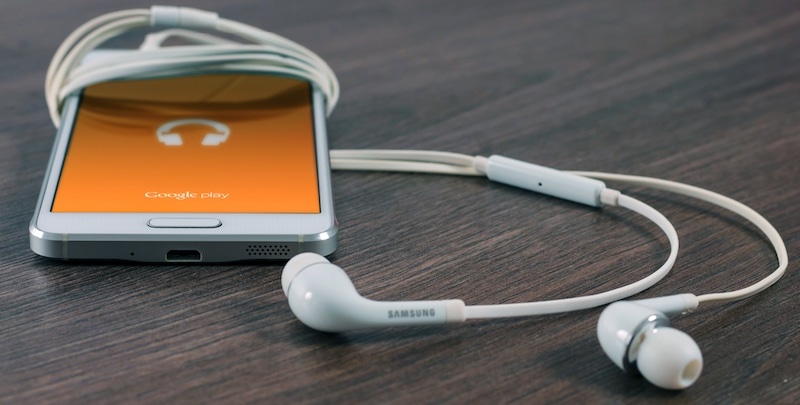
MP3 isn’t being killed by another format, but rather a delivery mechanism: streaming.
With streaming, it’s the software makers of standalone apps, or browsers supporting new formats that web app developers can take advantage of, that ultimately control the delivery format. Solving the “playable everywhere” problem is then done by the streaming app developer, and the format decision passes the user by entirely (unless, perhaps, there’s some explicit option for setting streaming quality).
Even if there’s no format revolution, it can benefit streaming providers to follow format evolution. Small savings in file size can add up to a huge saving of bandwidth. Saving a few hundred kilobytes if you stream a track isn’t a major concern, unless you’re on a slow connection or a metered usage plan. However, scale that up to the billion-plus users that a site like YouTube has, and that can provide a big motivation.
Spotify, Pandora and Apple Music are among those that have already paid their respects and thrown soil on MP3’s coffin. Notably though, SoundCloud are still providing their streams as 128 kbps MP3 today: “For all uploaded files, we provide a 128 kbps MP3 stream version alongside with the original audio file.”
DJs and MP3s
In a Vice Motherboard article, Stephen Witt, the author of How Music Got Free (a well-worth reading history of MP3 and digital music piracy) also adds a comment:
“I don’t think the locally stored file is completely dead and it won’t be for some time,” Witt said.
This is especially true for DJs.
Locally stored music, whether MP3 or not, isn’t going to suddenly be washed away by streaming any time soon. Even if streaming music in DJ software became more common, there are still big hurdles to overcome. Many (if not, all) of the streaming services have a no performing rule, as Spotify’s user guidelines.
YouTube aside, streaming catalogues are far from comprehensive, especially outside of the realm of popular dance music. Lots of past dance music is still buried underground, maybe because the creators and/or labels have disappeared, because master tapes or source files are lost or no longer exist, or just because no-one’s got round to getting them on there yet. (This chaos also explains why YouTube’s the exception: defunct labels aren’t around to arrange licensing. YouTube’s model is opt-out, creators have to request material is taken down, whereas the likes of Spotify carry music they’ve actively licensed.) For plenty of music, the only way of getting hold of a digital copy is ripping from your own CD or vinyl copy, a problem that affects download stores too.
And relying on internet connectivity for music is another possible point of failure that DJs playing out may be reluctant to add to their workflow.
The future, for now, is the past
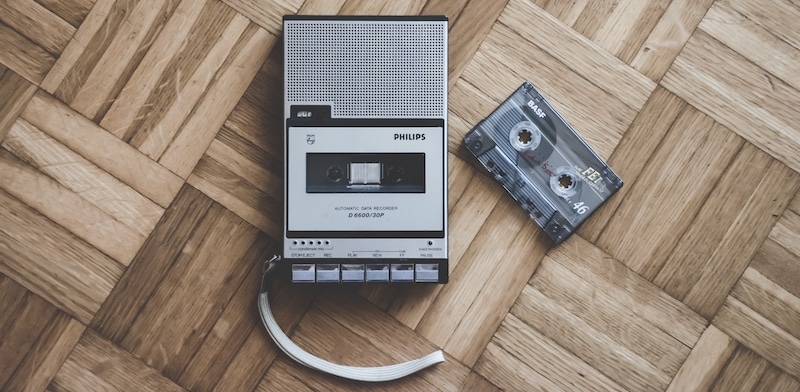
It’s also worth taking a look at what’s happened to other successful audio formats:
- Records are resilient despite being more than a century old
- Cassette tapes have seen a surging demand in recent years for indie releases
- CDs are in decline, but some new releases are still sold in that format even after nearly 40 years.
MP3s might not see that dedicated long-term loyalty once it finally is overthrown. A digital file is a digital file, and there’s no corresponding attachment to the form or design of the format itself or its packaging. Part of the love for vinyl and tape too perhaps also comes as a deliberate holding on to analog in the face of a digital future that increasingly permeates our lives.
Nonetheless, MP3s are now easy to create and license free to create, there’s a huge back catalogue of music in this format, and they are playable on just about every media playing or computing device made in the last 20 years.
It’ll be a while before MP3 is finally laid to rest.





